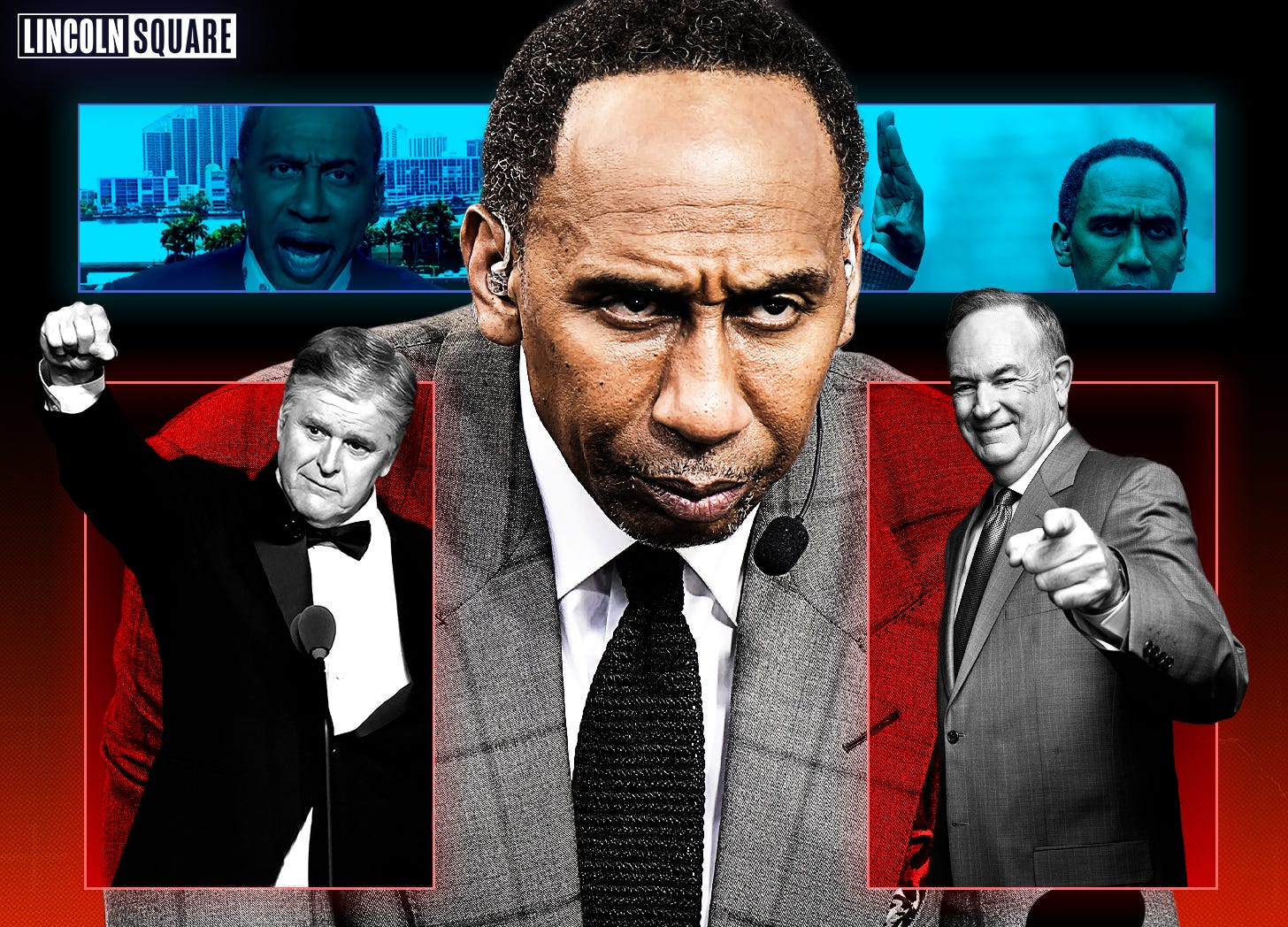Stephen A. Smith and the Performance of Neutrality
How a credible sports journalist turned political tourist mistook balance for bravery.
When I decided to start writing on Substack, I knew I was signing up for a heavy job: to be honest, to fact-check, to speak truth to power. But every so often, I’m dragged into a topic I didn’t ask for. I’ll be minding my business when people start blowing up my inbox: “What do you think about Stephen A. Smith?” At first I wo…





